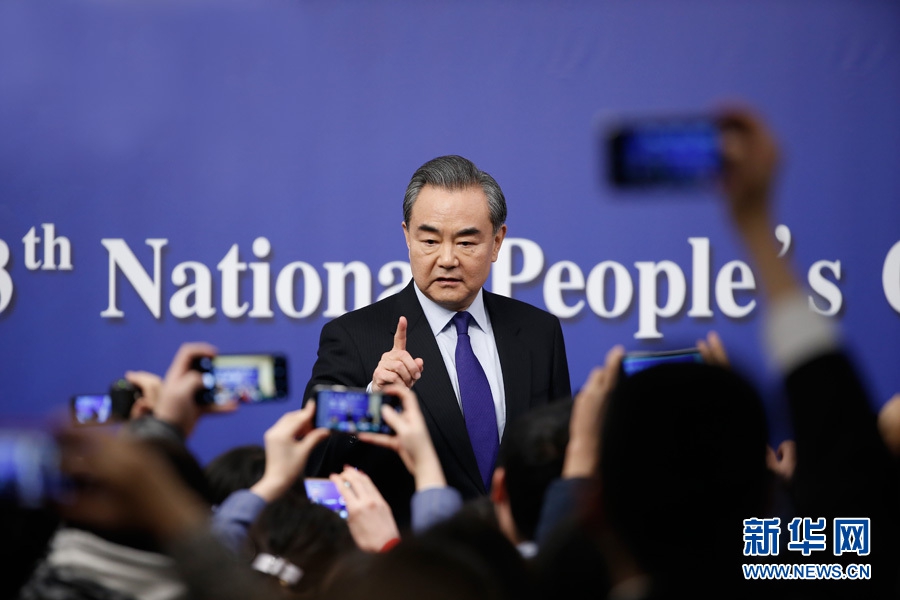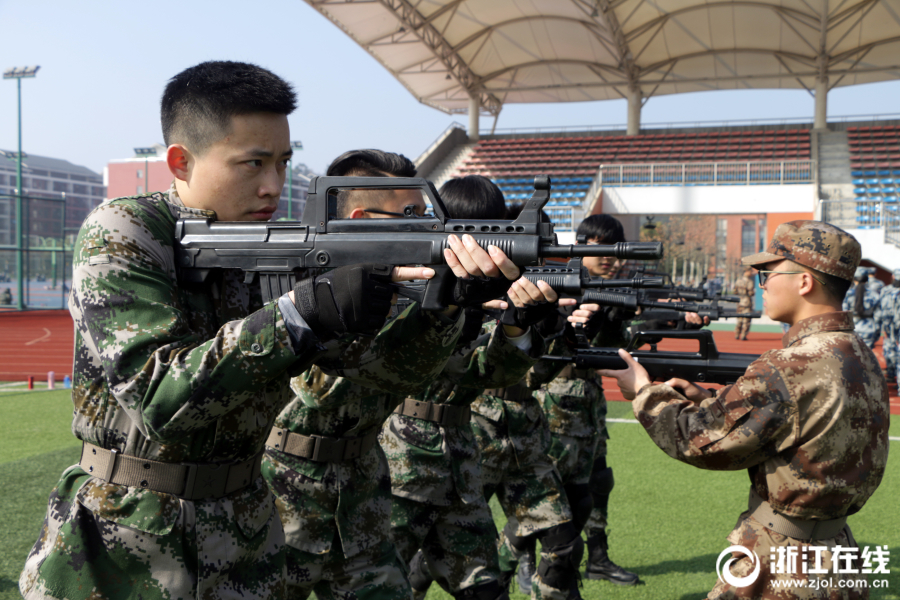
1. The five functions of the operating system are processor management, memory management, device management, file management and job management. Processor management The most basic function of processor management is to process interrupt events. After configuring the operating system, various events can be processed.
2. The main function of the computer operating system is process management, and its work is mainly process scheduling. In the case of a single user and a single taskNext, the processor is only monopolized by one user's task, and the process management work is very simple.
3. Operating System (abbreviation: OS) is a group of interrelated system software programs that supervise and control computer operation, use and run hardware, software resources and provide public services to organize user interaction.
4. Five major management functions of the operating system: (1) Job management: including tasks, interface management, human-computer interaction, graphical interface, voice control and virtual reality, etc. ( 2) File management: also known as information management. ( 3) Storage management: The essence is the management of storage "space", which mainly refers to the management of the main memory.
Any information system has five basic functions, namely: information collection and recording (input); information storage; information processing; information transmission; information output .
According to the functional introduction of the information system, the information system has five basic functions: input, storage, processing, output and control. Different functions have different functions, such as input function: the input function of the information system is determined by the purpose to be achieved by the system, the ability of the system and the permission of the information environment.
Five basic functions of the information system: input, storage, processing, output and control. Input function: The input function of the information system is determined by the purpose to be achieved by the system, the ability of the system and the permission of the information environment.Storage function: Storage function refers to the ability of the system to store various information and data. Mainly including: statistical functions.
The operating system has five functions: processor management: mainly controls and manages the work of the CPU. Storage management: mainly allocate and manage memory. Device management: mainly manage basic input and output devices. File management: responsible for the organization, storage, operation and protection of computer files.
The functions of the computer operating system include: processor management, memory management, device management, file management, job management and other functional modules. Processor management. The most basic function of processor management is to handle interrupt events. The processor can only detect interrupt events and generate interrupts and cannot process them.
The main function of the computer operating system is process management, and its main work is process scheduling. In the case of a single user and a single task, the processor is only monopolized by one user's task, and the work of process management is very simple.
The main functions of the operating system are process and processor management, job management, storage management, device management and file management, as follows: process and processor management. Because the execution of the program must rely on the processor, only one program flow can be processed and executed at any time. Homework management.
I) Processor management The most basic function of processor management is to handle interrupt events. The processor can only detect interrupt events and generate interrupts, and cannot handle these interrupt events. After configuring the operating system, all types of events can be handled.Another function of processor management is processor scheduling.
Five management functions of the operating system: job management: including tasks, interface management, human-computer interaction, graphical interface, voice control and virtual reality, etc. File management: also known as information management. Storage management: The essence is the management of storage "space", which mainly refers to the management of the main memory.

The storage management function of the operating system is to manage memory resources. It mainly realizes memory allocation and recovery, storage protection and memory expansion. The device management of the device management operating system is responsible for allocating and recycling external devices, and controlling external devices to operate according to the requirements of user programs.
The functions of the computer operating system include: processor management, memory management, device management, file management, job management and other functional modules. Processor management. The most basic function of processor management is to handle interrupt events. The processor can only detect interrupt events and generate interrupts and cannot process them.
The five functions of the operating system are processor management, memory management, device management, file management and job management.Processor management The most basic function of processor management is to process interrupt events. After configuring the operating system, various events can be processed.
UEFA EURO-APP, download it now, new users will receive a novice gift pack.
1. The five functions of the operating system are processor management, memory management, device management, file management and job management. Processor management The most basic function of processor management is to process interrupt events. After configuring the operating system, various events can be processed.
2. The main function of the computer operating system is process management, and its work is mainly process scheduling. In the case of a single user and a single taskNext, the processor is only monopolized by one user's task, and the process management work is very simple.
3. Operating System (abbreviation: OS) is a group of interrelated system software programs that supervise and control computer operation, use and run hardware, software resources and provide public services to organize user interaction.
4. Five major management functions of the operating system: (1) Job management: including tasks, interface management, human-computer interaction, graphical interface, voice control and virtual reality, etc. ( 2) File management: also known as information management. ( 3) Storage management: The essence is the management of storage "space", which mainly refers to the management of the main memory.
Any information system has five basic functions, namely: information collection and recording (input); information storage; information processing; information transmission; information output .
According to the functional introduction of the information system, the information system has five basic functions: input, storage, processing, output and control. Different functions have different functions, such as input function: the input function of the information system is determined by the purpose to be achieved by the system, the ability of the system and the permission of the information environment.
Five basic functions of the information system: input, storage, processing, output and control. Input function: The input function of the information system is determined by the purpose to be achieved by the system, the ability of the system and the permission of the information environment.Storage function: Storage function refers to the ability of the system to store various information and data. Mainly including: statistical functions.
The operating system has five functions: processor management: mainly controls and manages the work of the CPU. Storage management: mainly allocate and manage memory. Device management: mainly manage basic input and output devices. File management: responsible for the organization, storage, operation and protection of computer files.
The functions of the computer operating system include: processor management, memory management, device management, file management, job management and other functional modules. Processor management. The most basic function of processor management is to handle interrupt events. The processor can only detect interrupt events and generate interrupts and cannot process them.
The main function of the computer operating system is process management, and its main work is process scheduling. In the case of a single user and a single task, the processor is only monopolized by one user's task, and the work of process management is very simple.
The main functions of the operating system are process and processor management, job management, storage management, device management and file management, as follows: process and processor management. Because the execution of the program must rely on the processor, only one program flow can be processed and executed at any time. Homework management.
I) Processor management The most basic function of processor management is to handle interrupt events. The processor can only detect interrupt events and generate interrupts, and cannot handle these interrupt events. After configuring the operating system, all types of events can be handled.Another function of processor management is processor scheduling.
Five management functions of the operating system: job management: including tasks, interface management, human-computer interaction, graphical interface, voice control and virtual reality, etc. File management: also known as information management. Storage management: The essence is the management of storage "space", which mainly refers to the management of the main memory.

The storage management function of the operating system is to manage memory resources. It mainly realizes memory allocation and recovery, storage protection and memory expansion. The device management of the device management operating system is responsible for allocating and recycling external devices, and controlling external devices to operate according to the requirements of user programs.
The functions of the computer operating system include: processor management, memory management, device management, file management, job management and other functional modules. Processor management. The most basic function of processor management is to handle interrupt events. The processor can only detect interrupt events and generate interrupts and cannot process them.
The five functions of the operating system are processor management, memory management, device management, file management and job management.Processor management The most basic function of processor management is to process interrupt events. After configuring the operating system, various events can be processed.
 UEFA Champions League live
UEFA Champions League live
635.98MB
Check Walletinvestor digi plus
Walletinvestor digi plus
723.31MB
Check UEFA Europa League
UEFA Europa League
155.13MB
Check bingo plus update today Philippines
bingo plus update today Philippines
149.74MB
Check Hearthstone Wild Decks
Hearthstone Wild Decks
832.15MB
Check DigiPlus stock
DigiPlus stock
754.42MB
Check UEFA EURO
UEFA EURO
832.13MB
Check Casino free 100 no deposit
Casino free 100 no deposit
334.92MB
Check DigiPlus
DigiPlus
224.43MB
Check Hearthstone Arena win rate
Hearthstone Arena win rate
771.65MB
Check UEFA Europa League
UEFA Europa League
737.28MB
Check DigiPlus Philippine
DigiPlus Philippine
141.32MB
Check Arena plus APK
Arena plus APK
819.85MB
Check UEFA Champions League
UEFA Champions League
392.44MB
Check Casino Plus free 100
Casino Plus free 100
676.74MB
Check App to watch Champions League live free
App to watch Champions League live free
379.22MB
Check UEFA Champions League
UEFA Champions League
719.84MB
Check UEFA TV
UEFA TV
141.39MB
Check TNT Sports
TNT Sports
715.81MB
Check UEFA Champions League
UEFA Champions League
455.18MB
Check LR stock price Philippines
LR stock price Philippines
813.24MB
Check Casino Plus app
Casino Plus app
873.25MB
Check Hearthstone arena
Hearthstone arena
223.42MB
Check UEFA Champions League live streaming free
UEFA Champions League live streaming free
732.87MB
Check UEFA European championship
UEFA European championship
614.27MB
Check Casino free 100 no deposit
Casino free 100 no deposit
862.35MB
Check casino plus free 100
casino plus free 100
152.37MB
Check UEFA Champions League standings
UEFA Champions League standings
733.24MB
Check Hearthstone Arena win rate
Hearthstone Arena win rate
233.95MB
Check Hearthstone Arena win rate
Hearthstone Arena win rate
582.36MB
Check Casino redeem
Casino redeem
584.65MB
Check Casino Plus free 100
Casino Plus free 100
723.81MB
Check Casino free 100 no deposit
Casino free 100 no deposit
155.21MB
Check Casino Plus login register
Casino Plus login register
531.86MB
Check Hearthstone arena
Hearthstone arena
547.38MB
Check UEFA Champions League live
UEFA Champions League live
945.19MB
Check
Scan to install
UEFA EURO to discover more
Netizen comments More
2576 Casino Plus free 100
2025-02-23 19:44 recommend
2166 Walletinvestor digi plus
2025-02-23 19:43 recommend
2806 Hearthstone arena class win rates reddit
2025-02-23 18:16 recommend
470 casino plus free 100
2025-02-23 18:11 recommend
1246 Hearthstone Wild Decks
2025-02-23 17:59 recommend